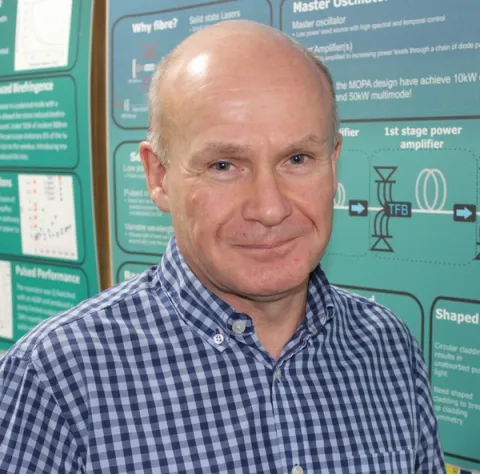About the project
Two-micron fibre laser technology has the potential to yield a wealth of new applications in areas such as industrial laser processing, medicine, defence and optical communications. Moreover, significant power scaling advantages can be gained by moving from traditional ytterbium-doped fibre lasers operating in the one-micron band to the two-micron band. The main focus of this project will be to investigate novel approaches for scaling output power from thulium doped fibre lasers operating in the two-micron wavelength band in both continuous-wave and pulsed regimes.
You will study the physics of thulium doped fibre gain media to formulate new designs for double-clad active fibres that allow scaling of laser output power whilst simultaneously achieving high efficiency and good beam quality. Thulium doped glasses offer access to a wide range of wavelengths in the two-micron band, so an important aspect of the programme will be to develop lasers with flexibility in operating wavelength driven by the needs of emerging applications. Laser architectures that are compatible with coherent beam combination to allow scaling beyond the fundamental limits of a single fibre will be a main theme. Finally, the project will explore a range of novel applications made possible by the improved laser performance.
This research will be supported by an EPSRC Studentship with the possibility of additional industrial sponsorship in the form of a CASE studentship. As such the project will involve close collaboration with one of the world’s leading fibre laser manufacturers based in the UK.

